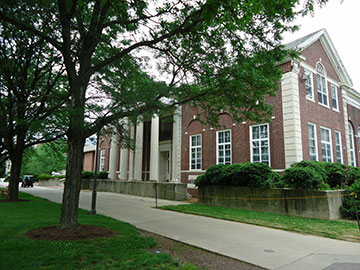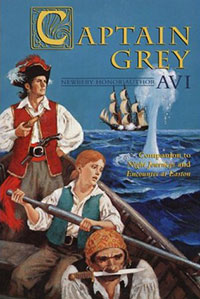 In the summer of 1975, I was working as a librarian, and trying to write. My first two books had been published. But, still needing to work full time at something other than writing, and having worked at the New York Public Library for about ten years, I took a librarian’s job at Trenton State College (now The College of New Jersey) where I was hired as a reader’s adviser, with a focus on the arts and literature. It was a somewhat unusual position insofar as I was a member of the faculty which, among other perks, meant I would have my summers off—to write, of course. That’s why I took the job.
In the summer of 1975, I was working as a librarian, and trying to write. My first two books had been published. But, still needing to work full time at something other than writing, and having worked at the New York Public Library for about ten years, I took a librarian’s job at Trenton State College (now The College of New Jersey) where I was hired as a reader’s adviser, with a focus on the arts and literature. It was a somewhat unusual position insofar as I was a member of the faculty which, among other perks, meant I would have my summers off—to write, of course. That’s why I took the job.
Being in New Jersey I did what I always did when in a new place: read some of its history.
I don’t know if I was required to join the (state-wide) faculty bargaining agent, the American Federation of Teachers, or joined on my own. In any case I was a member of the union. What I did not know was that there was on-going contract dispute. In the spring of 1976, a strike was called. That was a new one for me, but I went along. The first day of the strike was exciting in its way: mass picket lines, camaraderie, hopes for a quick positive resolution. In fact, there was no quick resolution and, after the first day, I was given a one hour picketing assignment—for two weeks.
For the first time as an adult I was not working full-time. For a day I was perplexed, and then I realized I could stay home and write. That too was a first.
 So it was that I sat down and began to write what would become Captain Grey, a novel set in New Jersey history, a sea-faring tale, if you will. [It was also the novel that in some fashion or other, the publisher forgot to send out for reviews.]
So it was that I sat down and began to write what would become Captain Grey, a novel set in New Jersey history, a sea-faring tale, if you will. [It was also the novel that in some fashion or other, the publisher forgot to send out for reviews.]
As for the strike: It was settled in NYC by Al Shanker (anyone remember him?), the head of the national union, and someone representing the state of New Jersey. The leadership of my union was not even at the table. The result: I (and all librarians) lost our faculty status, and our summers off.
Great labor victory!
Curiously, the word to strike derives from the nautical term, “to strike one’s sails,” which is to say not go anywhere.
But I did have my first historical novel.
1 thought on “Story Behind the Story #4:<br><em>Captain Grey</em>”
Most Exciting. Captain Grey was a book I read first in school. It felt very different from Enid Blytons. It made me think a lot. The characters felt empowered. Not often you come across a girl so daring.
Later on I wondered if the book reflected perhaps a dream or a past life recollection that the writer perhaps experienced.